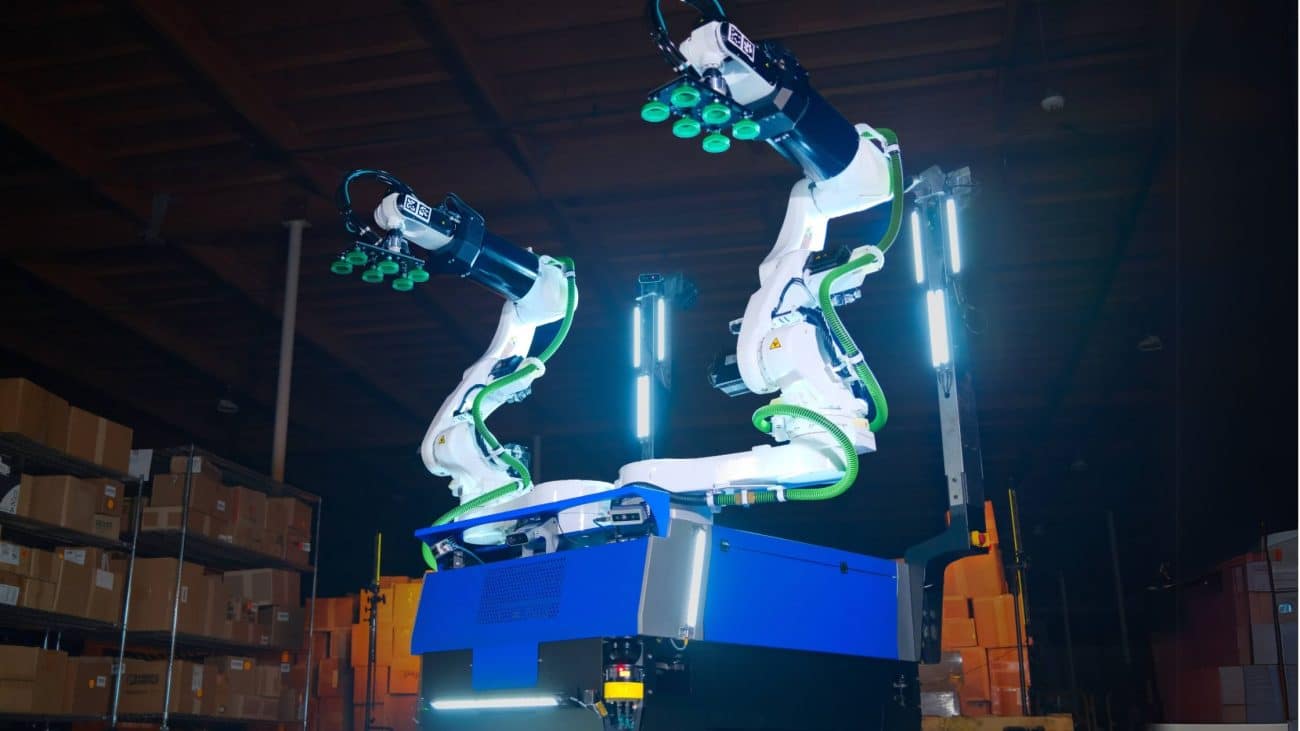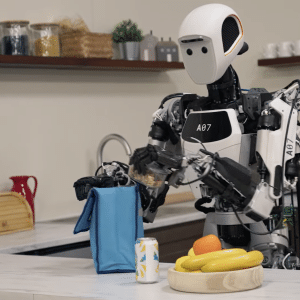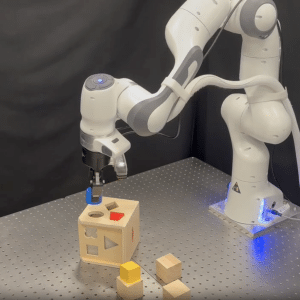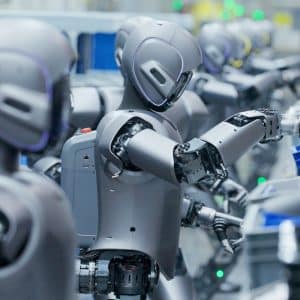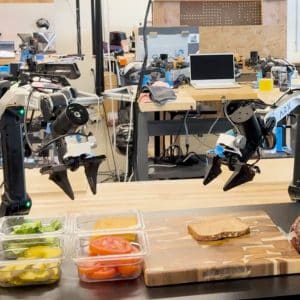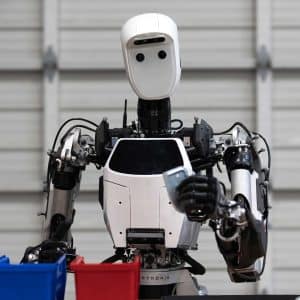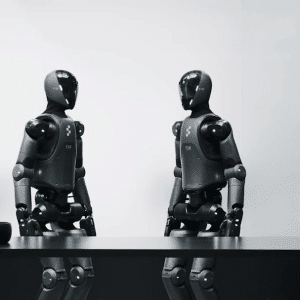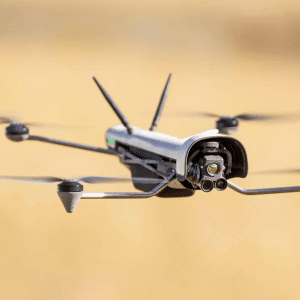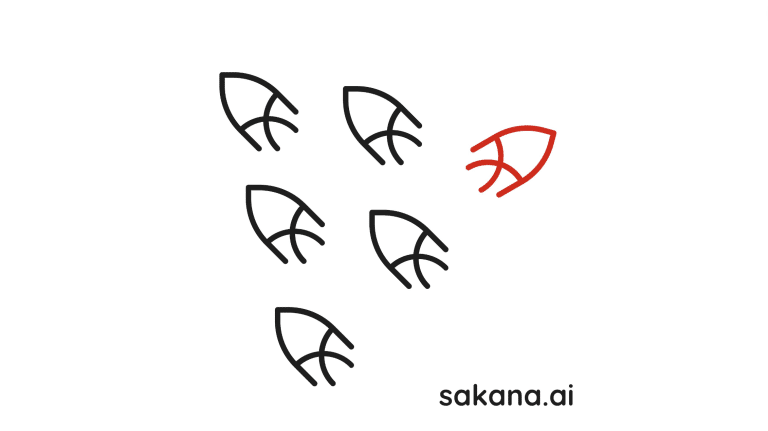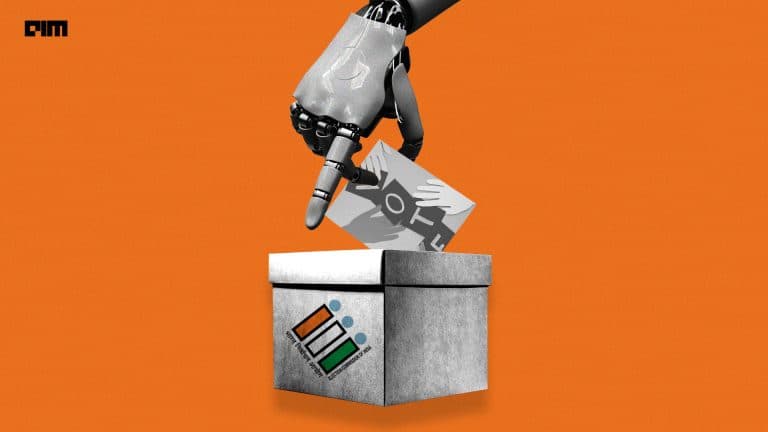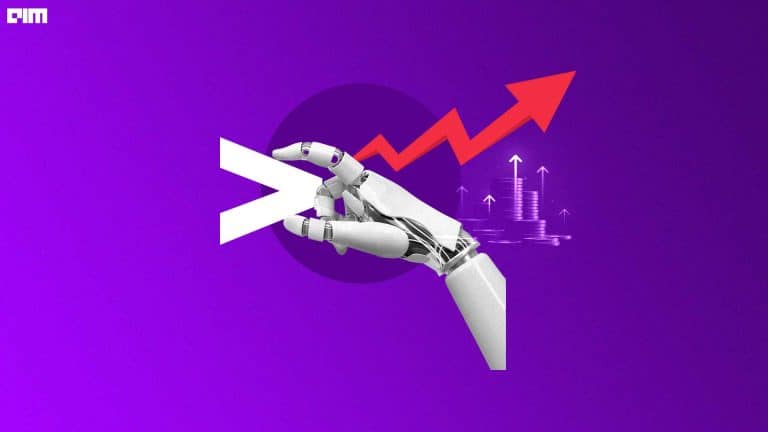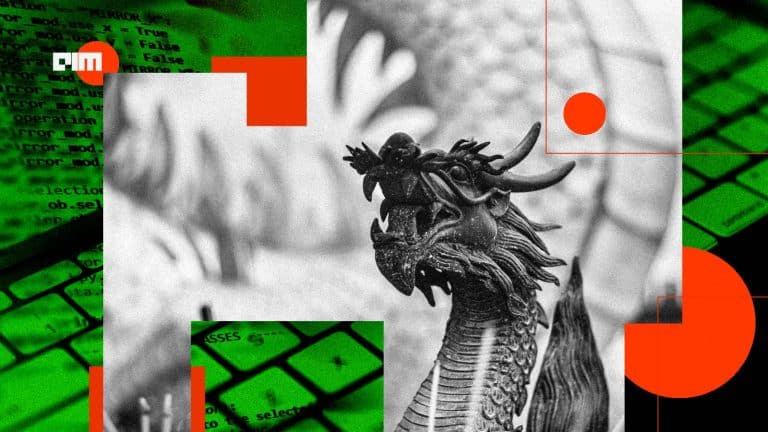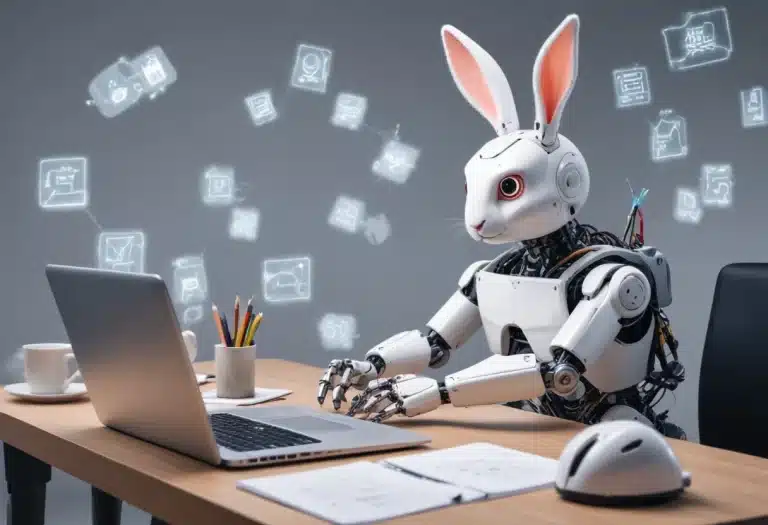California-based physical AI and robotics company Dexterity AI has launched Mech, which it claims is the first industrial superhumanoid robot designed to transform enterprise operations.
The robot, equipped with two arms mounted on a rover, can autonomously navigate industrial sites and perform repetitive, physically demanding tasks. Mech aims to address the challenges of efficiency and workplace safety faced by enterprises globally.
Mech combines human-like dexterity with superhuman strength, capable of lifting up to 130 lbs (~58 kg) and stacking boxes as high as eight feet. It integrates seamlessly with existing industrial infrastructure and automation systems.
Samir Menon, CEO of Dexterity, stated, “Mech represents a major leap forward in our mission to empower people with intelligent, flexible robots that safely and efficiently solve complex, labour-intensive industrial challenges.”
The robot operates autonomously using four steerable wheels and Dexterity’s onboard physical AI supercomputer, as the company mentioned on its official blog.
It utilises AI models to tackle tasks such as palletising boxes and handling fragile packages with precision. Enhanced by 16 onboard cameras, Mech can optimise packing strategies even in extreme temperatures ranging from 32°F to 122°F.
One operator can manage up to 10 Mechs simultaneously, reducing injuries caused by repetitive stress and heavy lifting.
Its capabilities can be expanded through software updates, with the initial application focusing on truck loading. Additional apps are planned for release later in 2025.
Dexterity’s innovation marks a significant step in robotics for logistics operations worldwide. The company aims to expand Mech’s functionality to further revolutionise industrial workflows.
The company relies on the approach of physical AI infusing human-like dexterous skills, creating “any robot for any application”.
For industrial robots, Shenzhen-based UBTECH Robotics recently completed what is claimed to be the world’s first multi-humanoid robot collaborative training program at Zeekr’s 5G Intelligent Factory. Using the company’s Walker S1 humanoid robots, it portrayed collaboration across various production zones.
Moreover, in a recent interview with AIM, Satish Shukla, co-founder of industrial automation company Addverb, discussed the company’s plans to launch its humanoid this year.
He believes it will take another three to four years for humanoids to become as prevalent as humans. “For every human, we probably might have one humanoid,” he added.


